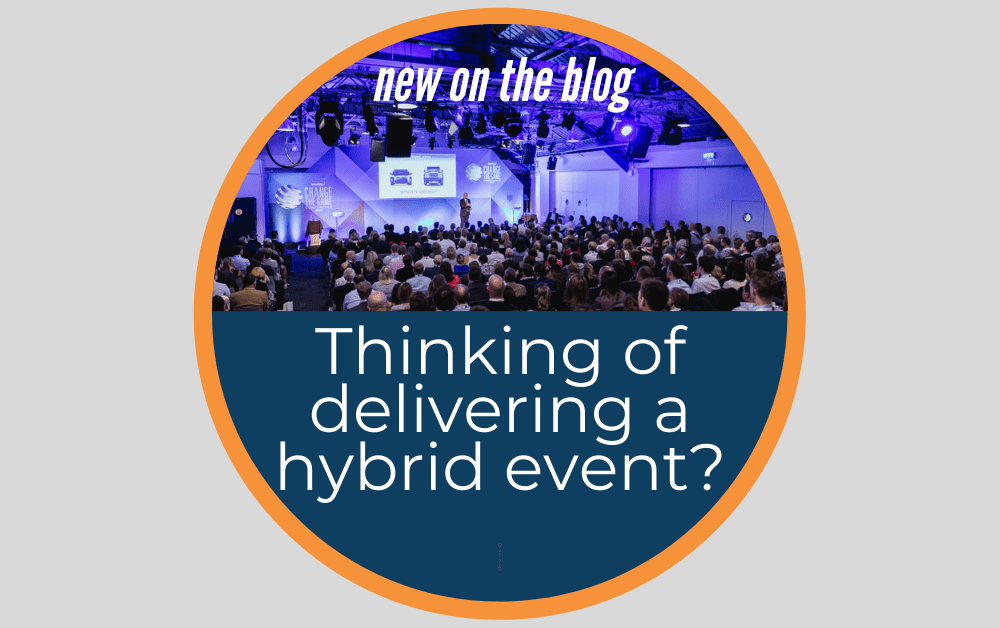The definition seems straightforward: A hybrid event is a combination of an in-person and streamed event that runs concurrently.
Hybrid events can enhance the impact of a physical event by expanding to virtual audiences; combining them can create one ‘super event’ which covers all aspects. According to a study by Markletic, around 35% of event organizers expect to invest in hybrid events over the next few years as they felt it will be a productive supporting service of the events industry.
(Read more here – https://www.markletic.com/blog/hybrid-event-statistics/ )
Here are our top 4 benefits of a hybrid event:
1. Increased Attendance
While it can be more beneficial to be at an event in person, some people do not have the time or ability to travel to attend events. With a hybrid event however, those individuals may be more inclined to attend if they can do so from the comfort of their home or office. Therefore, shifting to hybrid can attract many more attendees than a solely live event.
2. Enhanced Engagement and Reach
When you host a hybrid event you will not only be able to live stream your main keynote presentations, but also breakouts, exhibition areas and networking sessions as well. In fact, pretty much any aspect of the in-person event can be streamed to your online audience. Modern online event platforms provide a suite of engagement tools for delegates to engage with so that they can interact with speakers, sponsors, and fellow attendees throughout the events duration. In addition, all content is normally recorded for further use post event. This means any attendee can watch on demand as well as any content highlights being shared to a wider audience as required, maximising the reach of the content. This helps keep the event and key messages in the forefront of the minds of the attendees for longer.
3. Lower Carbon Footprint
Events should be as environmentally friendly as possible. By giving your audience the choice of attending virtually or in person, you can reduce your carbon footprint; for example, there should be reduced delegate travel and less food wastage. This will reinforce to attendees your environmental and sustainability values.
4. Increased Sponsorship Value
A hybrid event provides the opportunity for your sponsors to get in front of both the audience in-person and virtually; this means double exposure. Creating a digital environment enables new opportunities for branding and lead generation. So, by offering sponsors a larger audience to engage with this can attract more sponsorship revenue.
So when should you host a hybrid event?
If you are planning a physical event or meeting, we would always encourage you to contemplate a hybrid approach. With some events it may be preferable to be fully virtual or just in-person. But if you are planning a live event then adding an online layer should be considered.
So, which in-person events might benefit from a hybrid option? Below are some circumstances that can favour a hybrid event:
- There’s a potential large online audience for the event that you are interested in attracting
- You want to be able to generate additional revenue through monetization of additional sponsorship opportunities
- You want to drive business leads beyond the local market
- You need to grow brand awareness to normally unreachable areas
- Wanting to repurpose the content after the event to generate broader awareness
All sounding great? But what are the other considerations of a hybrid approach?
It’s not as simple as putting a camera in a room and live streaming the sessions. The content must be appropriate for online participation, so it often needs to be adapted. This means having the right skills set and experience that can bring the online content to life for that audience.
Hybrid events can be complex to deliver. Essentially, delivering a hybrid event means producing two events and therefore does require more resources. Previous concepts that work for in-person events may need rethinking and additional elements that make the online participation just as interesting as the physical one may need to be included.
The team responsible for the delivery will need to be suitably skilled and dedicated to overseeing that the virtual event runs smoothly. A hybrid is a different kind of logistical and production effort.
As the online aspect relies on a good connection and internet stability, it is vital that full tests and checks are carried out before the event day to ensure the best possible connections are in place. This will also normally involve a backup system which is a must for any online event.
Of course, the in-person audience must not be neglected; delegates have made the effort to travel to participate in the event, so just as much attention should be made in ensuring they get just as good an experience as the online participants.
To summarise, the rise of virtual events has highlighted to everyone its many advantages – scale, increased participation, cost-efficiency, greater ROI and reduced environmental impact, to name just a few. Hybrid offers an evolved way of delivering events, one that embraces what we have learnt over the last 18 months – combining the best of physical and virtual to create connected events which deliver greater value to all stakeholders.

